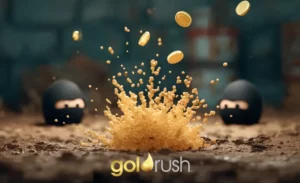
For many years, absinthe has been surrounded by myths of causing hallucinations and wild, mind-altering experiences. However, current understanding and research debunk these claims. Despite its historical reputation and portrayal in literature and art as a hallucinogenic liquor, absinthe does not induce hallucinations. The belief that absinthe could make you trip or see fantastical visions is more a result of its high alcohol content rather than any inherent hallucinogenic properties.
A key ingredient in absinthe is thujone, derived from wormwood. Thujone was once thought to be the active chemical causing hallucinogenic effects. However, contemporary research shows that while thujone is a GABA antagonist and can produce muscle spasms in large doses, it does not cause hallucinations. The amounts of thujone present in absinthe, especially in modern formulations, are far too low to produce such effects.
The primary factor contributing to the intense effects of absinthe is its high alcohol content. This can lead to severe intoxication when consumed in large quantities, similar to other strong spirits like vodka, whiskey, or tequila. The intoxication caused by absinthe is due to alcohol, not any unique hallucinogenic properties of the drink itself.
Legal Status, Safety, and Flavor Profile
Absinthe, a historically controversial alcoholic beverage, has regained legality in most parts of the world. Previously banned due to misconceptions about its safety, absinthe saw a resurgence in legality by the early 2000s. In the United States, however, the law stipulates that absinthe must be thujone-free to be legal. Thujone, a compound found in wormwood (one of absinthe’s key ingredients), was previously believed to cause hallucinations and other serious health issues, leading to its prohibition.
Despite its notorious reputation, modern absinthe is considered safe when consumed responsibly and in moderation. The legend of absinthe inducing hallucinations or insanity is largely a myth. Today’s absinthe, when enjoyed responsibly, is unlikely to cause effects beyond those typical of high-proof alcoholic beverages, such as intoxication. However, excessive consumption can lead to the same risks associated with any alcoholic drink, including alcohol poisoning and addiction.
Historically, the safety of absinthe was more questionable. Prior to the ban, the absence of stringent quality control allowed some manufacturers to include harmful additives like methanol and antimony, potentially leading to adverse health effects.
As for its flavor, absinthe is often likened to licorice, as noted by Ernest Hemingway in his short story “Hills Like White Elephants.” This comparison, however, is contested by absinthe connoisseurs. According to the Wormwood Society, a high-quality absinthe should not taste like licorice candy. Instead, it should offer a complex, subtly bitter, dry, and astringent profile, reflecting its unique blend of herbs and botanicals, including wormwood, anise, and fennel.
Educating Yourself with Reliable Sources
To navigate the misconceptions surrounding absinthe, especially regarding hallucinations, it’s crucial to refer to credible and scholarly sources. Utilizing online databases like PubMed or Google Scholar can provide you with access to scientific studies and research papers. These platforms offer valuable insights into the composition and effects of absinthe, helping you separate myth from reality.
Engaging with communities dedicated to absinthe, such as forums or social media groups, can be incredibly helpful. Members of these communities, including the Wormwood Society, often share a wealth of knowledge and experience. Here, you can find discussions, personal anecdotes, and even recommendations for quality absinthe brands, further enriching your understanding and enjoyment of this unique beverage.
Utilizing Mobile Apps for Drink Safety
For those concerned about responsible drinking, various mobile apps can assist in monitoring your alcohol intake. These apps often come with features like blood alcohol content (BAC) calculators, which can help you drink responsibly and avoid overconsumption, ensuring a safe and enjoyable experience with absinthe or any other alcoholic beverage.
Participating in Tasting Events
To truly appreciate and understand absinthe, participating in tasting events can be invaluable. These events often provide guided tastings with experts who can explain the flavors, history, and correct ways to enjoy absinthe. This hands-on experience is not only educational but also a great way to socialize with fellow enthusiasts.
Reading Historical and Cultural Literature
Lastly, exploring the rich history and cultural significance of absinthe through books and documentaries can be enlightening. Works that delve into the historical context of absinthe’s popularity, its ban, and subsequent revival can provide a deeper appreciation and understanding of the drink. This background knowledge will not only inform you but also enhance your overall experience with absinthe.
Understanding the Traditional Preparation of Absinthe
To fully appreciate absinthe and mitigate any misconceptions about its effects, it’s important for you to understand the traditional method of preparing it. Absinthe is typically diluted with cold water poured over a sugar cube on a slotted spoon. This process, known as “louching,” turns the drink cloudy and reduces its alcohol strength. By preparing absinthe in this traditional manner, you can enjoy its complex flavors without overconsumption.
When selecting an absinthe, focus on quality. High-quality absinthes are distilled and contain natural ingredients, including wormwood, anise, and fennel. Avoid cheaper, artificially colored versions, as these are more likely to have unwanted additives and less likely to provide the authentic absinthe experience. By choosing a quality product, you ensure a more authentic and enjoyable experience.
As you explore the world of absinthe, set realistic expectations about its effects. Understand that absinthe, like any alcoholic beverage, can lead to intoxication if consumed irresponsibly, but it does not induce hallucinations. By having realistic expectations, you can enjoy absinthe as a unique and historic drink without undue concern over mythical effects.
Moderation Is Key
Remember, moderation is crucial. Even though absinthe won’t make you hallucinate, it’s a high-proof spirit and should be enjoyed in moderation. Keeping track of your consumption and drinking water in between absinthe servings can help you avoid overindulgence and ensure a pleasant experience.
Consulting with a Healthcare Professional
If you have any health concerns or are taking medication, consult with a healthcare professional before trying absinthe. They can provide personalized advice considering your health history and current medications, ensuring that your experience with absinthe is safe and enjoyable. Your health should always be your top priority, even when exploring new and exciting beverages.
It’s essential to recognize that the notorious reputation of absinthe as a hallucinogenic drink is more rooted in historical myth than in scientific fact. Modern absinthe, when consumed responsibly, offers a unique tasting experience without the risk of hallucinatory side effects attributed to its historical counterpart. By understanding its true nature and embracing responsible consumption practices, you can enjoy absinthe as a fascinating and flavorful part of cultural and culinary history, free from unfounded fears.







